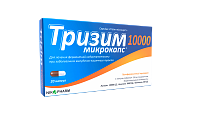Indications
Ibuprofen is used as an analgesic and anti-inflammatory agent in the treatment of rheumatoid arthritis (including juvenile rheumatoid arthritis or Still's disease), ankylosing spondylitis, osteoarthritis and other non-rheumatoid (seronegative) arthropathies. Ibuprofen is indicated for the treatment of non-rheumatic periarticular inflammatory processes such as "frozen shoulder" (inflammation of the joint sheath), bursitis, tendonitis, tendovaginitis, and low back pain. Ibuprofen may also be used to relieve pain from soft tissue injuries such as ligament sprains. Ibuprofen is also indicated as an analgesic for mild to moderate pain relief for conditions such as dysmenorrhea, toothache or postoperative pain, for symptomatic relief of headache, including migraine.
Information on proper use
How to use and dosage
Side effects may be minimized by using the lowest effective dose for a short time.
Adults and children over 12 years of age: orally 200 mg 3-4 times/day. The capsule is taken without chewing, drinking water. The interval between doses of the drug should be 6-8 h.
6-8 ч. To achieve a faster therapeutic effect in adults, the dose may be increased to 400 mg up to 3 times/day. The maximum daily dose is 1200 mg. The maximum daily dose for children 12-17 years of age is 1000 mg.
Some patients may take 600-1200 mg of ibuprofen per day. In severe or acute conditions, the dosage can be increased, provided that the total daily dose does not exceed 2400 mg, in several doses.
Elderly people: elderly people are at increased risk of side effects. If NSAIDs are necessary, ibuprofen should be used at a low effective dose for a short time. The patient should regularly check for gastrointestinal bleeding while taking NSAIDs. In the presence of renal or hepatic insufficiency, the dosage should be determined individually.
The drug should not be taken for more than 7 days or in higher doses. If it is necessary to use for a longer period of time or in higher doses, a doctor's consultation is required.






